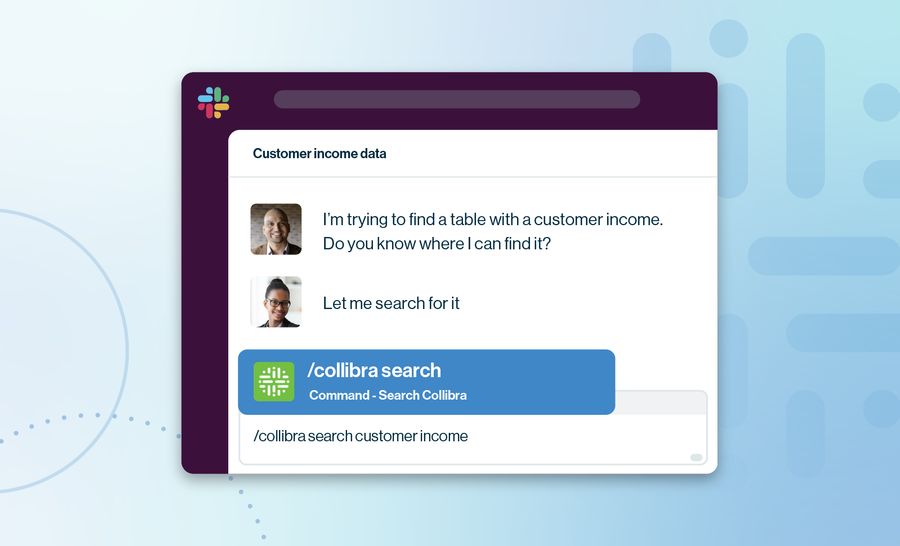76% of respondents were either not data literate or felt their literacy was lacking to some degree in one or more areas.
Why is a business glossary essential to data literacy and data intelligence?

You need to create a more data-driven culture. But you don’t know where to start.
You want to support data-driven decision-making. But trying to overcome silos within departments let alone across your enterprise is a daunting prospect. Enter the business glossary.
We’ve blogged before about the definition of a business glossary. In this blog, we want to focus on the connection between the glossary and data literacy.
A critical component of data governance, a business glossary can be your first big step toward a more data-driven business.
More than a list, a business glossary serves as a source of truth for your business terms and definitions, ensuring data-driven decisions are made with confidence and clarity.
The business glossary: A common business language
Data intelligence is a journey. To begin, we need a culture of data literacy.
And one of the most essential elements of data literacy is the presence of a common language, not only to understand each other but to validate that our understanding is based on a shared definition of terms.
The fact is there are multiple ways to say the same thing.
Sometimes the difference is semantic. For example, a customer could be called a “buyer” or “purchaser,” while a vendor could be referred to as a “supplier” or “seller.”
In other cases, the differences result from the entity in question – for example, a retail bank might see customers as “natural persons,” while a corporate bank might see them as “companies.”
Differences could also exist internally. A chief risk officer may view corporate customers as legal entities, while a marketing professional may view that same customer as a collection of individual persons.
As a company, you can’t make confident data-driven decisions if your reports aren’t reconciling these variations in terminology. In fact, the lack of consistency is a major barrier to decision-making.
Those that are familiar with the challenges of business terminology and facilitating an ecosystem that supports data-driven decisions understand the business glossary provides a powerful service, clarifying and creating a source of truth for your specific universe of business terms.
From business glossary to data literacy
Your business glossary is foundational to data governance, ensuring that data can be classified logically in a business context.
But what good is a glossary if you can’t use it? To truly leverage a business glossary, you need people who can use the data to drive decision-making. You need a culture of data literacy across your organization — from finance to sales, marketing to operations.
Data literacy is the ability to leverage data on customers, sales, profits, losses, and marketing campaigns (among others) and then communicate that information to others.
And despite data being a crucial part of any business, 76% of key business leaders are not confident in their data literacy skills, according to a recent survey.
Only 24% of respondents were fully confident in their data literacy, in a recent survey.
Source: Dataversity
Poor data literacy can hold back your team and the organizations you serve — and truth is the demand for data literacy is only going to increase as the world becomes more and more data obsessed.
Data literacy and better business results
Your company may already be collecting massive amounts of data in the form of customer surveys, business reviews, website analytics, point-of-sale metrics, marketing campaign information, and online sales data.
It’s an excellent start toward being a data-driven company, but if your employees aren’t data literate, none of that collected information will make a difference to your bottom line.
Typically, increased data literacy means better results for your company. It’s a signal that your professionals are making the best use of your most critical resource: your data.
But data literacy shouldn’t be confined to the IT department or data office. Your customer service representatives may not need the same level of literacy as your IT department. However, they should still feel comfortable reading data and understanding how to use it to make informed business decisions.
It’s clear that data is crucial to informed decision-making at your organization, and it has the potential to increase productivity, profits, and growth opportunities. In fact, we know from research that strong data cultures see better business outcomes — up to 3X better outcomes!
Next step: Build a business glossary
Your colleagues around the office may be a little apprehensive about learning how to read, use, and communicate data. But in today’s data-driven economy, it’s essential to the future health of your business.
At Collibra, we believe in a world that’s united by data. Collibra Data Intelligence Cloud helps companies get the most out of data with a single integrated platform to automate workflows, deliver trusted insights, and unite your organization around data.
The business glossary is a great first step toward data literacy and data intelligence.
Related articles

Data GovernanceFebruary 14, 2025
Why we are the data and AI leader for you

Data GovernanceJuly 28, 2025
Your new shortcut to trusted data: Collibra’s two-way Slack Integration

Data GovernanceMay 24, 2022
The journey to data catalog and governance success: A customer perspective

Data GovernanceOctober 12, 2023
Improved user provisioning leads to calmer seas and smoother sailing
Keep up with the latest from Collibra
I would like to get updates about the latest Collibra content, events and more.
Thanks for signing up
You'll begin receiving educational materials and invitations to network with our community soon.
